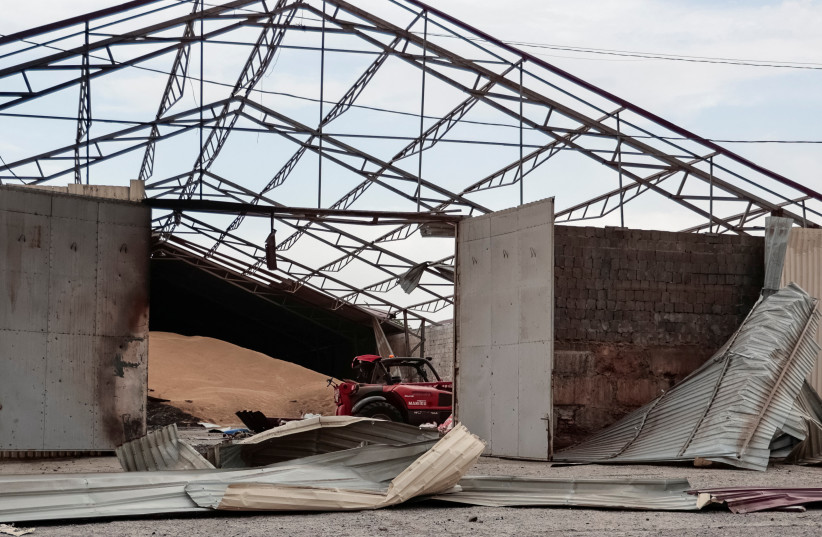Ukraine will only be able to export a maximum 2 million tons of grains a month if Russia refuses to lift its blockade of the country's Black Sea ports, Taras Vysotskyi, Ukraine's first deputy minister of Agrarian Policy and Food, said on Tuesday.
Ukraine is trying to export its vast stores of grain by road, river and rail at present to help to avert a global food crisis, but these routes face severe capacity constraints.
Before Russia invaded Ukraine on Feb. 24, the country was able to export up to 6 million tons of grains a month. Since the grain shipments from Ukraine's Black Sea ports stopped, more than 20 million tons of grain are stuck in the country's silos.
"I think we reached the limit. The biggest amount we can export is about 2 million tonnes a month," Vysotskyi, speaking via video link, told participants at an International Grains Council (IGC) conference in London.
He said even if Russia's port blockade is lifted Ukraine would need about six months to demine the waters around its Black Sea ports, meaning the world would remain short of grains for some time.

Global context
Ukraine is the world's fourth-largest grain exporter.
Global wheat prices Wv1 hit record highs in March and the surge in food prices has triggered protests across developing countries, as well as contributing to an acceleration in headline inflation rates throughout the world.
The United Nations is trying to broker a deal to get Ukraine's grain shipped from its Black Sea ports such as Odesa. Russia has said it wants Western sanctions lifted as part of the deal and has also accused Ukraine of mining its own waters.
Ukraine's grain, oilseed and vegetable oil exports rose 80% in May month on month to 1.743 million tons but the volumes are still significantly below the exports in May 2021, the agriculture ministry said on Tuesday.
Russia's response
Russia's defense minister said on Tuesday the Ukrainian ports of Berdyansk and Mariupol, seized by Russian forces, have been de-mined and are ready to resume grain shipments.
"The de-mining of Mariupol's port has been completed. It is functioning normally, and has received its first cargo ships," Sergei Shoigu said in televised comments.
Agricultural exports from southern Ukraine have been blocked since Russia invaded the country in late February, driving grain prices higher.
Ukraine has accused Russia of stealing vital grain supplies, claims US Secretary of State Antony Blinken has called "credible" - while Moscow says Western sanctions are to blame for the situation, which has threatened to trigger a global food crisis.
The United Nations is working on plans with Kyiv and Moscow for how to restart grain exports from Ukrainian ports, with Turkey possibly set to provide naval escorts to ensure safe passage out of the Black Sea.
Shoigu also said on Tuesday Russian armed forces had created the "necessary preconditions for the full resumption of railway traffic between Russia, the Donbas, Ukraine and Crimea" and had started delivery of cargo to the Ukrainian cities of Mariupol, Berdyansk and Kherson" on 1,200 km (750 miles) of reopened railway tracks.
Creating a so-called "land corridor" between Russia and the Crimean peninsula, annexed by Moscow in 2014, has been a major part of Russia's strategy since the start of its offensive.
Some 6,489 Ukrainian military personnel have surrendered to Russian forces since the start of what Russia calls its "special military operation," including 126 in the past five days, Shoigu added.
